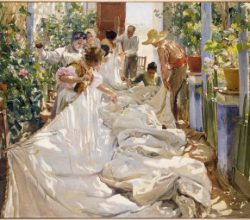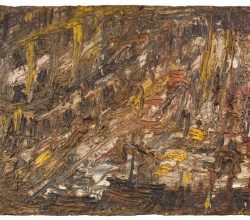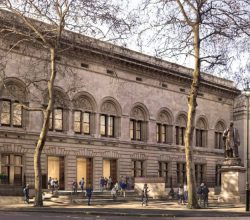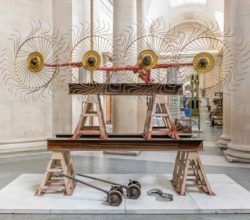
Sorolla: Spanish Master of Light @ the National Gallery
Simon | astrofella | 2nd April 2019
Popular in his native Madrid, Sorolla is elsewhere obscure. One critic praises his “Impressionist effervescence” and immense skill in depicting light. However, key works, from the 1890’s, when Impressionism was no longer new, were essentially traditional. [He represented] “everything modern painting set out to overthrow.” Sorolla aspired to be Goya’s heir. He was not.




